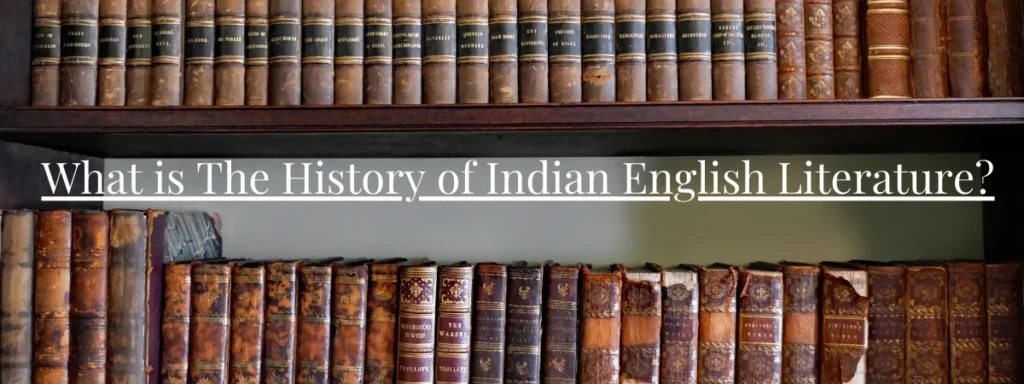African literature is a rich tapestry woven from the diverse cultures, histories, and experiences of the African continent. Spanning over thousands of years, it encompasses a variety of forms, from ancient oral traditions to contemporary written works. This literary tradition offers a profound insight into the lives, struggles, and triumphs of African people. Let’s explore its journey in an easy-to-understand way.
Ancient Beginnings: Oral Traditions
Before written language became prevalent, African societies relied heavily on oral traditions. Storytelling was a central part of cultural life, serving not only as entertainment but also as a means of preserving history, teaching morals, and reinforcing social values. Griots, who were storytellers and historians, played a crucial role in this tradition. They memorized and recited epic tales, genealogies, and folk stories, ensuring that the community’s heritage was passed down through generations.
Some of the most famous oral epics include the “Epic of Sundiata,” which tells the story of the founder of the Mali Empire, and the “Epic of Mwindo” from the Congo region. These stories were rich in themes of heroism, adventure, and the interplay between humans and the supernatural.
The Influence of Islam and Written Traditions
With the spread of Islam across North and West Africa from the 7th century onwards, Arabic became a significant literary language. Islamic scholars began writing in Arabic, producing religious texts, poetry, and historical accounts. One of the most notable scholars was Ibn Battuta, a Moroccan explorer whose travels were documented in his famous work, “Rihla.”
In Ethiopia, Ge’ez, an ancient Semitic language, was used to produce religious and literary texts. The “Kebra Nagast,” a 14th-century text, narrates the origins of the Solomonic dynasty and the Ark of the Covenant.
Colonial Era and the Rise of Written Literature
The arrival of European colonizers in the late 19th and early 20th centuries brought about significant changes. European languages, such as English, French, and Portuguese, were imposed, and formal education systems were established. This period saw the emergence of written African literature in European languages.
One of the earliest African novels written in English was “Things Fall Apart” by Chinua Achebe, published in 1958. Achebe’s novel is a poignant exploration of the impact of colonialism on traditional Igbo society in Nigeria. It remains one of the most significant works in African literature, providing a critical perspective on the effects of European colonization.
In French-speaking Africa, writers like Léopold Sédar Senghor, who was also a poet and the first president of Senegal, became prominent. Senghor was a leading figure in the Negritude movement, which celebrated African culture and identity in response to colonial oppression.
Post-Independence Literature
The wave of independence movements across Africa in the mid-20th century brought about a new era in African literature. Writers began to explore themes of national identity, freedom, and the challenges of post-colonial societies. Ngũgĩ wa Thiong’o from Kenya is a key figure from this period. His novel “A Grain of Wheat” delves into the Mau Mau uprising against British colonial rule.
Many African writers started to write in their native languages as a form of cultural reclamation. Ngũgĩ himself made a significant shift from writing in English to Gikuyu, his mother tongue, advocating for the preservation and promotion of indigenous languages.
Contemporary African Literature
Today, African literature is more vibrant and diverse than ever. Contemporary African writers tackle a broad range of issues, including politics, gender, migration, and globalisation. Chimamanda Ngozi Adichie, a Nigerian author, has gained international acclaim for her novels such as “Half of a Yellow Sun,” which deals with the Biafran War, and “Americanah,” which explores the experiences of Nigerian immigrants in the United States.
In addition to novels, African literature now includes a growing body of work in other genres, such as science fiction and fantasy. Nnedi Okorafor, another Nigerian writer, is known for her contributions to Africanfuturism, a genre that combines African culture and traditions with futuristic and speculative elements.
The Role of African Literature in Society
African literature serves multiple purposes. It is a powerful tool for preserving culture and history, educating readers about the diverse experiences of African people, and promoting social and political change. Literature provides a platform for marginalized voices, challenges stereotypes, and fosters a greater understanding of the continent’s complexities.
Moreover, African literature has played a significant role in the global literary scene, influencing and inspiring readers and writers around the world. It continues to evolve, reflecting the dynamic and ever-changing realities of African societies.
Conclusion
African literature is a dynamic and evolving field that offers a window into the soul of the continent. From ancient oral traditions to contemporary novels, African stories have always been a vital part of cultural expression. As new generations of writers emerge, they continue to enrich this literary heritage, ensuring that the voices of Africa are heard and celebrated worldwide. Through their works, we gain a deeper appreciation of the rich tapestry of African life, past and present.
The Igbo Novel
The Igbo Novel is a literary genre that originates from the Igbo people of southeastern Nigeria. It often explores themes central to Igbo culture, including traditions, social structures, family dynamics, and the impacts of colonialism and modernity on Igbo society. These novels are typically written in English, although some are also penned in the Igbo language. One of the most notable works in this genre is Chinua Achebe’s “Things Fall Apart” (1958), which portrays the life of Okonkwo, an Igbo man, and the profound changes his community undergoes due to British colonization. Achebe’s narrative style, rich in Igbo proverbs and cultural references, set a precedent for subsequent Igbo Novels. Igbo novels often delve into the tension between tradition and change, personal and communal identity, and the struggle for self-definition in a rapidly changing world. They play a crucial role in preserving and reflecting on Igbo heritage and experiences.
The Major Time Periods of African Literature
| Time Period | Characteristics | Notable Authors |
| Pre-Colonial (before 19th century) | Oral traditions, folktales, myths, proverbs, and epic poetry; transmitted orally. | Griot storytellers, Anonymous poets and bards |
| Colonial (late 19th – mid 20th century) | Introduction of written literature, themes of resistance, cultural identity, and anti-colonialism. | Chinua Achebe, Ngũgĩ wa Thiong’o, Wole Soyinka |
| Post-Colonial (mid 20th century – 1970s) | Reflection on independence, neocolonialism, social and political challenges. | Nadine Gordimer, Ayi Kwei Armah, Buchi Emecheta |
| Modern/Contemporary (1980s – Present) | Diverse themes including globalism, feminism, rights, urbanization, and diaspora experiences. | Chimamanda Ngozi Adichie, Teju Cole, Nnedi Okorafor |
Major African Novelists
Pre-Colonial to Early Colonial (before 1950)
- Thomas Mofolo (1876-1948): Early 20th century; known for “Chaka” (1925), one of the first African novels in Sesotho.
Colonial Period (late 19th century – mid 20th century)
- Sol Plaatje (1876-1932): Early 20th century; known for “Mhudi” (1930).
- Peter Abrahams (1919-2017): Mid 20th century; known for “Mine Boy” (1946).
Post-Colonial Period (mid 20th century – 1970s)
- Chinua Achebe (1930-2013): Mid to late 20th century; known for “Things Fall Apart” (1958).
- Wole Soyinka (b. 1934): Mid to late 20th century; Nobel Prize in Literature 1986.
- Ngũgĩ wa Thiong’o (b. 1938): Mid to late 20th century; known for “Weep Not, Child” (1964) and “Petals of Blood” (1977).
- Buchi Emecheta (1944-2017): Late 20th century; known for “The Joys of Motherhood” (1979).
- Ayi Kwei Armah (b. 1939): Late 20th century; known for “The Beautyful Ones Are Not Yet Born” (1968).
Modern/Contemporary Period (1980s – Present)
- Nadine Gordimer (1923-2014): Late 20th century; Nobel Prize in Literature 1991; known for “July’s People” (1981).
- Ben Okri (b. 1959): Late 20th century to present; known for “The Famished Road” (1991), Booker Prize winner.
- Chimamanda Ngozi Adichie (b. 1977): Early 21st century; known for “Half of a Yellow Sun” (2006) and “Americanah” (2013).
- Teju Cole (b. 1975): Early 21st century; known for “Open City” (2011).
- Nnedi Okorafor (b. 1974): Early 21st century; known for “Who Fears Death” (2010) and “Akata Witch” (2011).
These novelists have significantly contributed to the richness and diversity of African literature, each bringing unique perspectives and narratives from their respective regions and experiences.
Chinua Achebe: A Remarkable Life and Legacy
Chinua Achebe was an incredible writer from Nigeria who wrote stories that made people think and feel deeply. His life was full of struggles and triumphs, and his works continue to inspire readers around the world.
Early Life:
Chinua Achebe was born on November 16, 1930, in Ogidi, Nigeria. He was the son of Christian missionaries, which meant that he learned about both Igbo traditions and Christian beliefs from a young age. This mix of cultures would later influence his writing.
Education and Influences:
Achebe went to school at the University of Ibadan and later studied broadcasting in London. He was a bright student who loved reading books from all over the world. However, he noticed that most of the books he read portrayed Africa and its people in a negative light. This bothered him a lot and inspired him to write stories that showed the true richness and complexity of African life.
Writing Career Begins:
In 1958, Achebe published his first novel, “Things Fall Apart.” This book became one of the most important works in African literature. It tells the story of Okonkwo, a proud Igbo warrior, and how his life changes when European colonizers arrive in his village. Through Okonkwo’s story, Achebe explored the impact of colonialism on African societies and the struggle to maintain cultural identity.
Major Works:
Achebe wrote many other books, essays, and poems throughout his life. Some of his other notable works include:
- “No Longer at Ease” (1960): This novel follows the life of Obi Okonkwo, a young Nigerian man struggling with corruption and cultural clashes in post-colonial Nigeria.
- “Arrow of God” (1964): Set in a fictional Igbo village, this novel explores the conflicts between traditional Igbo religious beliefs and the spread of Christianity.
- “Anthills of the Savannah” (1987): A powerful story about political corruption and oppression in post-colonial Africa, set in the fictional country of Kangan.
A Voice for Africa:
Chinua Achebe was not just a writer; he was also a voice for Africa. He used his writing to challenge stereotypes about Africa and to advocate for social and political change. He believed that African writers should tell their own stories in their own way, without depending on outsiders to do it for them.
Legacy:
Chinua Achebe’s impact on literature and culture cannot be overstated. His works have been translated into many languages and taught in schools and universities around the world. He received numerous awards for his contributions to literature, including the Man Booker International Prize.
Related Articles: What is The History of American Literature?
Conclusion:
Chinua Achebe was a literary giant whose words continue to resonate with readers today. He showed the world that African stories are powerful, important, and worthy of attention. Through his writing, he opened doors for future generations of African writers and inspired people everywhere to see the beauty and complexity of African life. Chinua Achebe may no longer be with us, but his legacy lives on in the hearts and minds of those who continue to be moved by his stories.
Wole Soyinka: A Literary Luminary
Early Life and Education
Wole Soyinka, born on July 13, 1934, in Abeokuta, Nigeria, hailed from a Yoruba family with his father being a schoolteacher. His formative years were steeped in Nigerian culture, which profoundly influenced his later works.
Soyinka’s academic journey took him to Nigeria and later to England, where he honed his literary skills. Despite the challenges he faced, Soyinka excelled academically and demonstrated a passion for literature from a young age.
Literary Contributions
Soyinka’s literary repertoire spans across plays, poems, essays, and novels. His writing is deeply rooted in his Nigerian heritage and reflects the socio-political landscape of his time.
One of his most renowned works is the play “Death and the King’s Horseman,” which delves into themes of tradition, colonialism, and cultural clash. Through this and other works, Soyinka eloquently addresses the complexities of Nigerian society and the broader African experience.
Social and Political Activism
Beyond his literary endeavors, Soyinka has been a vocal advocate for social justice and political reform. He fearlessly confronted corruption and oppression in Nigeria, often at great personal risk.
Soyinka’s activism led to his imprisonment and exile, but he remained undeterred in his fight for human rights and democracy. His courage and resilience in the face of adversity have made him a beacon of hope for many.
Recognition and Legacy
In 1986, Wole Soyinka made history by becoming the first African to be awarded the Nobel Prize in Literature. The prestigious honor recognized his “wide cultural perspective and poetic overtones in his drama, which with a linguistic ingenuity that illuminates the path of the individual through the labyrinth of history.”
Soyinka’s impact extends far beyond the literary realm. He has inspired generations of writers, activists, and thinkers with his unwavering commitment to truth and justice.
Conclusion
Wole Soyinka’s life and works epitomize the power of literature to effect change and provoke thought. His unwavering dedication to his craft and his tireless advocacy for social and political reform have left an indelible mark on the world. As Africa’s literary luminary, Soyinka’s legacy will continue to inspire and resonate for generations to come.
Chimamanda Ngozi Adichie: A Beacon of Literature
Early Life and Education
Chimamanda Ngozi Adichie was born on September 15, 1977, in Enugu, Nigeria. She grew up in a close-knit family and was surrounded by storytelling from a young age. Adichie’s parents encouraged her love for books and education, laying the foundation for her future literary success.
Adichie’s academic journey began in Nigeria before she pursued higher education in the United States. She studied communication and political science at Drexel University in Philadelphia before earning a master’s degree in creative writing from Johns Hopkins University.
Emergence as a Literary Voice
Adichie burst onto the literary scene with her debut novel, “Purple Hibiscus,” published in 2003. The novel, which explores themes of family, religion, and politics in Nigeria, garnered critical acclaim and announced Adichie as a rising literary talent.
Her second novel, “Half of a Yellow Sun,” published in 2006, further solidified Adichie’s reputation as a formidable writer. Set during the Nigerian Civil War, the novel poignantly captures the human cost of conflict and displacement. It won the Orange Prize for Fiction and catapulted Adichie to international fame.
Feminism and Advocacy
Adichie is a staunch advocate for gender equality and feminism. In her famous TED Talk, “We Should All Be Feminists,” Adichie eloquently articulates the importance of feminism in contemporary society. The talk has been adapted into a book and has sparked global conversations about gender and empowerment.
Through her writing and activism, Adichie challenges stereotypes and celebrates the resilience and agency of women. She believes in the power of storytelling to effect social change and often incorporates feminist themes into her novels and essays.
Literary Contributions
Adichie’s literary oeuvre encompasses novels, short stories, and essays that tackle a wide range of subjects, from love and identity to politics and race. Her works are characterized by vivid storytelling, rich character development, and incisive social commentary.
In addition to “Purple Hibiscus” and “Half of a Yellow Sun,” Adichie has penned other acclaimed novels such as “Americanah” and “The Thing Around Your Neck.” She has also published essay collections like “We Should All Be Feminists” and “Dear Ijeawele, or A Feminist Manifesto in Fifteen Suggestions,” which further amplify her feminist voice.
Recognition and Legacy
Chimamanda Ngozi Adichie’s contributions to literature and feminism have earned her numerous awards and accolades. She has received the MacArthur Fellowship, commonly known as the “Genius Grant,” and has been honored with honorary degrees from prestigious universities worldwide.
Adichie’s impact extends beyond the literary realm. She has inspired countless readers, particularly women and girls, to embrace their voices and advocate for social justice. Her commitment to authenticity, empathy, and inclusivity continues to resonate with audiences globally.
Conclusion
Chimamanda Ngozi Adichie’s life and works exemplify the transformative power of literature and advocacy. Through her compelling storytelling and unwavering commitment to feminism, she has challenged and reshaped societal norms, leaving an indelible mark on contemporary culture. As a beacon of literature and social justice, Adichie’s legacy will continue to inspire generations to come.





